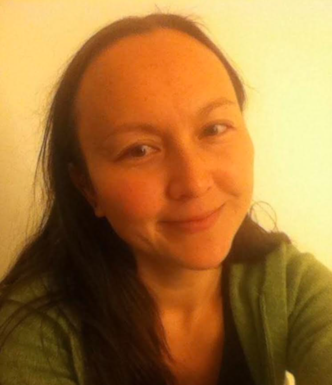
Jenny Heikkila Diaz (they/she) is a Yale Class of 2000 graduate from Los Angeles, CA. While at Yale, JHD was in Morse College and majored in Political Science. “My interest in education and anti-bias anti-racism (ABAR) teaching as a career began in college,” they recount, “when I started to volunteer and work in New Haven Public Schools.” After graduating, JHD taught elementary, middle, and high school for 12 years in various schools across the U.S. They were also a school leader/administrator in California and New York for about six years, then went on to coach teachers and school leaders for about a decade.
Today, JHD works as the Chief of Talent and Operations at New Haven Promise, “a place-based college access, college success, and career/civic launch nonprofit.” They are also involved in several communities of practice—one associated with the Anti-Racist Teaching & Learning Collective, and another through the UConn Asian & Asian American Studies Institute—and they are a supporter of Listen for a Change, a “student-led collective that designs and leads anti-bias anti-racism professional development sessions for educators.” The YES program had not yet been established when JHD attended Yale, but they took a few education courses through the Residential College Seminar offerings.
“The best days,” JHD says about teaching, “are the ones where I get to work directly with young people and their families. Building those long-term relationships and supporting young people in pursuing and realizing their dreams of a more just and equitable world is such a privilege.” As JHD highlights, though, “There are so many systemic barriers that our young people face. In our work at New Haven Promise, we witness every single day how our young people and their families are experiencing all kinds of systemic oppression, because our Promise scholar and alumni community is: 90% people of color, 70% first generation to college, and 71% from low-income households.”
JHD’s advice for current YES students is to “always reflect and interrogate your ‘best’ practices because there is always something more to learn AND to unlearn if you are committed to becoming a culturally sustaining educator.” They emphasize, “Make sure you have a preponderance of young people (much younger than you) as mentors, because they have perspective and insight and wisdom to share.”